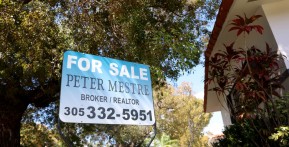The house's down payment could be the biggest hit to your bank account, but if you think that it's the last financial expense you'll pay as a homeowner, think again.
Thought not as massive as the down payment, there are potential post deal expenses that come with homeownership. Here are expensive budget mistakes that new homeowners make according to Trulia:
Monthly mortgage
Buying a home is definitely a wonderful milestone, but you have to realize that it comes with the reality of having to do payments on a monthly basis for 15 to 30 years, depending on the terms.
Property taxes
Property tax could come twice a year and computation varies state by state or even by country. The catch is the numbers could fluctuate year to year.
Homeowner's insurance
This type of insurance also varies by state and region and is also influenced by factors such as having home security features. Homeowner's insurance ranges from $500-$1500, depending on your location and the coverage you signed up for. Sometimes, you can get insurance bundles that already include homeowners, auto, and life from where you can enjoy discounts.
Hazard insurance
Don't wait for a hurricane warning before looking into getting hazard insurance. Depending on the area you live in, certain hazard insurance like earthquakes, floods, and tornadoes may be more relevant. This type of insurance often take 30 days to go into effect so get one even before there's a need for it.
Condo, co-op, or homeowners' association fees - and assessments
Annual and monthly fees are expected when you live in a condo, townhouse, or co-op for building and grounds maintenance. But even single family homes may be subjected with similar fees if they live in a particular area or subdivision with common property or communities with security guards, swimming pool, tennis courts, playground, and other common utilities that require repair, replacements, and maintenance.
Utilities
Homeownership comes with monthly utilities bills such as gas, electric, water, sewer and trash removal. Practice energy efficiency by turning lights off and making sure that HVAC and other home appliance are working properly.
Big-ticket renovations and repairs
Be prepared for major repairs and renovations like the roof, sewage lines, plumbing, and electrical, and home updates like kitchen or master bath renovation. These are all major costs that should make you want to save up for a rainy day.













